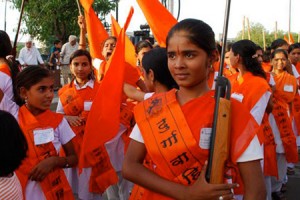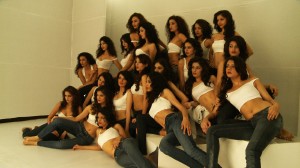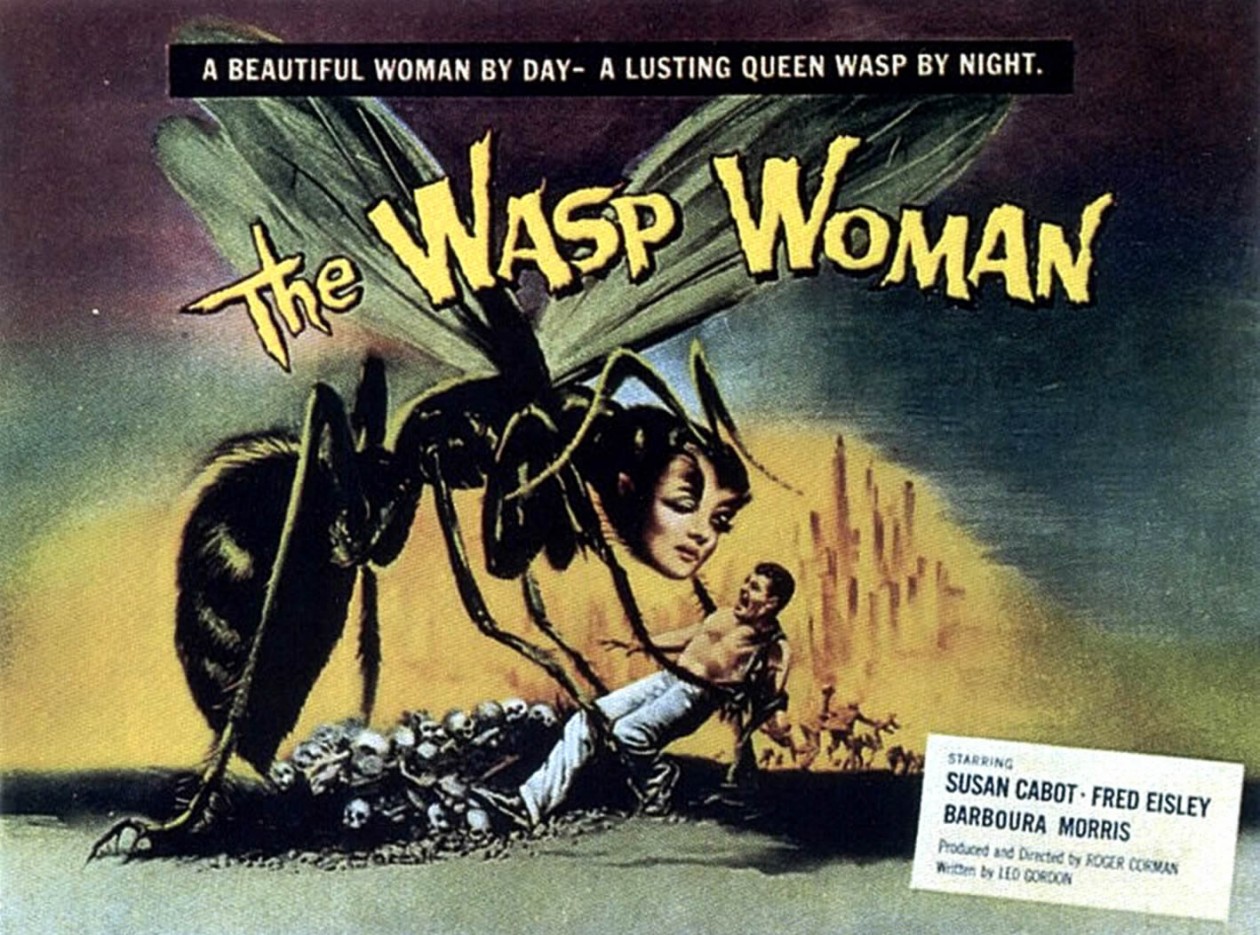In her article Mohanty analyzes what is next for feminists at the beginning of the twenty-first century. She argues that the rise of religious fundamentalisms with their deeply masculinist and often racist rhetoric poses a huge challenge for feminist struggles around the world. This shed light on The World Before Her for me, because the Hindu fundamentalists are so eager to make sure their culture remains free from further westernization.
In the film, the fundamentalists’ main sources of anger are the beauty pageants in India. The contestants in the beauty pageant, such as Ruhi, have less traditional takes on the practices of Hinduism. On the other hand, Prachi, the leader of the camp that trains “proper Hindu women,” is a Hindu nationalist concerned with upholding the deeply rooted values of her culture. Initially, the film made it seem like these two, opposing sides were polar opposites striving for separate things.

However, in analyzing the film from a feminist standpoint, the two sides begin to blur together. Both groups of women face oppression from different sources. In the film, Prachi talks about her father’s mistreatment of her. At one point he chuckles at the memory of burning his daughter’s foot with a flaming iron…? He emphasizes her “duty” to marry and have children, while Prachi is more concerned with working full time for the Hindu movement. Prachi’s story is ironic because although she teaches young girls to be proper Hindu women, she herself is violating the norms of traditional, “Mother India” in refusing to marry and have children.
The contestants in the beauty pageant view the pageant as a means to escape this oppressive society highlighted by Prachi’s situation. However, the film did a great job of capturing how as these women leave one oppressive society, they quickly enter another. They find freedom from the strict boundaries of life as a traditional, Hindu women, and enter into an Americanized society that values consumerism and capitalism. This is ironic seeing as Mohanty believes that the theory, critique, and activism around anti-global capitalism has to be a key focus for feminists. At one point the members of the ‘Miss India’ pageant find themselves in a photo shoot where they place white sheets over their heads and upper bodies (so as to only emphasize and show off their legs). It is interesting to notice how the people who dictate these photoshoots (the photographers, etc) are all men. One woman questioned whether the loss of her dignity is worth it in achieving her dream.
Prachi and Ruhi represent two, paradoxical types of Indian women. For example, although Prachi claims to uphold the values of traditional Hindu life for women, she herself represents the hard-working, independent, non-traditional Hindu women. As Ruhi claims to strive for independence and freedom from the bounds of Hindu society, she finds herself under the objectification and degrading nature of American society in regards to women’s value. I think Mohanty is trying to suggest in her article that women should not bear the brunt of mistreatment in oppressive societies, but should also not buy into the brainwashing nature of capitalism either. The answer is a new, unrestrained feminism that can cross these boundaries.

I thought this film was a really good example of one of Mohanty’s points in that in real life, our identities exist in complicated and sometimes contradictory ways, and this particularity should be explored. We talked in class previously about how our expectations of documentary films is that they will show us the “truth” – however we feel about this idea, I appreciated how in this film we saw the ways in which people’s lives are messy and complex; it allowed the concepts of the beauty pageants and the Hindu nationalist camps to be complicated. When the film finished, at first I was thinking “well, which is better and which is worse? what’s the answer?” but I think this sense of complication and contradiction was the point. There wasn’t a completely clean, final resolution of the film, which was refreshingly honest to me when I was watching it. Obviously, there are problems which we saw with both of the cultures and ideas surrounding the beauty pageants and Hindu nationalist camps. But I think recognizing this, and how it relates to larger factors like globalization and capitalism, was one of Mohanty’s main arguments.